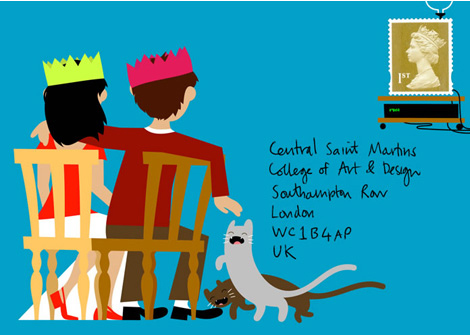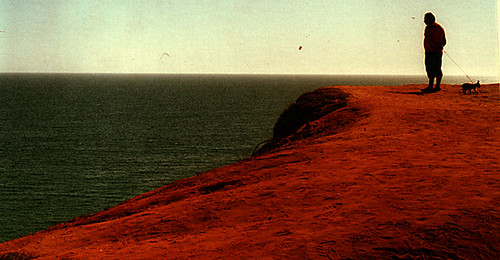after reading sonia’s post on the bulgarian abandoned children, i saw the documentary and visited the campaign website.
i’m in shock, revolted, sad, angry and tearful. how is it possible that this still happens these days?
please go watch it and share. it’s important.
i’ve copied below an article writen for the independent by Dominique Lawnson, who puts it into words better than i can right now.
In a hidden corner of the EU, defenceless children are suffering unimaginable cruelty
Friday, 16 November 2007
Tonight the BBC broadcasts the annual appeal for Children in Need. It’s a cause few of us can be unaware of: last year the show raised over £18m for British children in a single evening. This Sunday, however, BBC2 is to broadcast a programme which reveals children completely forgotten not just by the outside world, but by their own country, where they have been systematically neglected and fatally malnourished. This country is not in Africa. It is in the European Union, allegedly the most civilised body of nations that has ever existed.
Bulgaria’ s Abandoned Children is a one-and-a-half-hour long documentary directed by the extraordinary Kate Blewett, who 11 years ago brought the world’s attention to some of the horrifying consequences of China’s one-child programme with her film The Dying Rooms. Now she has turned her unflinching directorial eye to the treatment of disabled children in Bulgaria, having spent nine months in an institution for such abandoned infants in the remote village of Mogilino.
Kate Blewett tells me that she found this experience even more distressing than what she witnessed in China. Having watched her film, I can understand why. We see the children effectively incarcerated, locked up and left alone at night. There is a playground outside, but it is unused, full of rust and weeds. The inmates are fed disgusting, colourless slop, unrecognisable as food. As a result, those least able to fend for themselves are emaciated to such an extent that they resemble skeletons more than humans. Before they die, their bones begin to break.
Kate Blewett films one child, Vasky, visibly wasting away, whose leg is clearly broken: she is screaming in agony. A member of staff treats this by rubbing powder into the disfigured leg, which only causes Vasky to howl even louder. “Can’ t you see her leg is broken?” Blewett tells the white-coated “nurse”, through a translator. “It’s her disease,” says the unmoved assistant. In fact Vasky entered Mogilino with only one thing the matter with her: she was born blind.
That is true of a large number of the 75 children in Mogilino. Many of them were not severely disabled when they entered the institution, but, completely starved of any form of stimulation, let alone education, they have become profoundly disturbed – with the inevitable result that some of the stronger children begin to attack the weaker ones.
Perhaps the most affecting case is that of Didi, an almost beautiful teenage girl who has been abandoned by her mother. When we first encounter Didi, she presents as someone on the mild end of the autistic spectrum. She protests that she does not belong in a place like Mogilino. We see her writing endless letters to her mother, asking to be let back home. The letters are never delivered. The staff know that the mother does not want to deal with Didi ever again – and indeed, she chose Mogilino because it was the institution furthest from her own home. By the end of the film the formerly articulate and bright-eyed Didi spends her days rocking backwards and forwards, silently, like most of the other children – those, that is, who are not tied down “to protect themselves”.
You might wonder why the institution was content to let Kate Blewett in with her film crew, given the terrible sights which lay in store. As she says: “Most of the staff were fairly welcoming, and showed no shame for the way the children’s bodies and limbs were wasting away. It was as if all was fine. This was something I witnessed in China when making The Dying Rooms – the staff were not embarrassed to let us film dying children, as it seemed the norm.”
The Director of Mogilino, admittedly, does come across as a cold and selfish character: when finally confronted by Blewett, she complains that none of it is her fault: the staff, she complains, “have let me down”. While it is true that the evident plumpness of all the nursing assistants somehow seems disgusting when set against the malnutrition of the children – presumably that’s how the food budget gets allocated – they do not seem to be cruel people. Like guards in a concentration camp, they probably go back to their own children at the end of the working day and treat them with love and kindness. They have convinced themselves that the disabled children in the institution are somehow not human at all.
Perhaps the same could have been said of many such institutions in this country 100 years ago – or perhaps more recently than that; and, just as used to be the case here, when children are born with disabilities in Bulgaria the parents are invariably told they would be best-advised to abandon their new-born – to forget about them, in fact. That, presumably, is why Bulgaria has more children in such institutions than any other country in Europe.
The Bulgarian government has reacted to Kate Blewett’s investigation in the way you might expect – with a mixture of denial and fury: which is to say, shame. One of its functionaries, Christo Monev, declared that “the film was made because of the policy of the British Government who are against Bulgarian immigrants”. Mr Monev went on to say that he could make a film about the English showing “drunken men and nymphomaniac women”. He concluded that “Bulgaria does not need English nannies to come and tell us what to do”.
Underneath this bluster we can sense the deep embarrassment of the Bulgarian government. They were understandably very proud of the fact that this year their country became a full member of the EU, nothing less than a formal acknowledgement that they had joined the elite of European nations. Britons are flooding into Bulgaria, spending lavishly on skiing trips and holiday homes. Kate Blewett’s film – a glimpse of something altogether darker – was not in this script at all.
What does the European Commission think of all this? In response to a complaint about Bulgaria prompted by Kate Blewett, the head of its Health and Consumer Protection Directorate spoke out, as follows: “It is hoped that an EU patient safety network will be established in 2008, to take forward work to reduce unsafe care in response to patient safety issues common to all Member States.” This classic piece of EU-speak was doubtless informed by the official Bulgarian government response: “The UN Convention of the Rights of the Child and the Bulgarian Child Protection Act guarantee the compliance of institutions with the requirements to observe the rights of children and regulate the state commitment to guarantee the children’s ultimate interests, inclusive of delivering of high quality care.”
I have never heard a better example of Orwell’s observation that “political language is designed to make lies sound truthful and murder respectable”.



